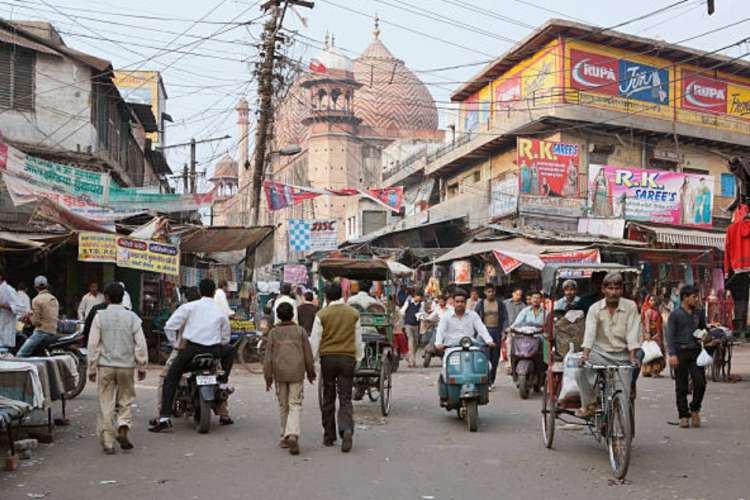Poor urban governance, neglect of basic infrastructure, and policies that overlook the realities of city living continue to erode the quality of life for millions, trapping citizens in a cycle of unmet promises and deteriorating conditions. In India, however, these issues are far from minor.
Despite impressive buildings, vast estates, and a flourishing economy, Indian cities remain dull places. Their monuments are crumbling, prime properties are overrun by encroachments, and funds meant for essential repairs vanish into thin air. Every year, urban India is seduced by grand promises of transformation, only to watch its citizens’ patience slowly erode into mounting frustration. Smart cities, bullet trains, and expressways may dazzle the imagination, but the urgent call remains: to rejuvenate our decaying infrastructure and enforce genuine accountability within city administrations.
READ | AI and fair use: ANI-OpenAI dispute to shape India’s copyright laws
A city in disrepair
Navigating urban India still feels like an obstacle course designed by someone with a grudge against pedestrians. Meanwhile, municipal authorities watch from a safe distance, occasionally emerging to take credit for a pothole-free road—only to see it dug up again by another department. If this is vikas, one can only wonder: developing for whom?
Our cities are crumbling under the weight of neglect, corruption, and misplaced priorities. Roads are dug up without accountability, footpaths have disappeared under encroachments, and public transport is bursting at the seams. Yet, year after year, grand urban development announcements are made, and citizens are expected to believe that change is just around the corner—and, importantly, that corruption is diminishing.
Budget allocations vs reality
The Union Budget 2025-26 has once again allocated funds for urban infrastructure, including a Rs 1 lakh crore Urban Challenge Fund, with Rs 10,000 crore earmarked for the current financial year. While this sounds promising, past experience shows that budgetary allocations often become soft funding for states rather than leading to tangible improvements in urban living conditions. The Smart Cities Mission, launched with much fanfare in 2015, is a stark reminder: despite thousands of crores being spent, most cities remain plagued by inefficiency, poor planning, and zero accountability.
The failure of urban governance in India is systemic. Municipal bodies lack autonomy, funds are mismanaged, and every civic problem devolves into a blame game. When a road is dug up, the municipality blames the water department, which in turn points fingers at the electricity board, and so on. It’s akin to an IPL fielder missing the ball and gesturing to the next fielder—except in this case, there is no one left to catch it. Meanwhile, citizens are left navigating dust-choked roads and chaotic traffic, with no clear party to hold accountable.
Inequality, corruption, and apathy
Despite rapid urbanisation, our cities continue to be treated as afterthoughts in policy and planning. The middle class, which drives economic growth, receives little in return for its taxes. Basic amenities remain elusive—illegal parking is rampant, school buses clog roads around educational institutions, and public spaces are overrun by encroachments. There is no serious attempt to curb noise pollution, enforce traffic discipline, or ensure that municipal services function efficiently. The apathy of governance is matched only by the resignation of citizens, who have come to expect little and receive even less.
Corruption thrives in this vacuum of accountability. The absence of complaints is often mistaken for the absence of wrongdoing, when in reality, people have simply given up. Few dare to question municipal inefficiency, and those who do face endless bureaucratic hurdles, intimidation, and even legal harassment. Meanwhile, illegal construction flourishes, civic contracts are awarded to politically connected firms, and maintenance budgets vanish into thin air.
Urban development should not revolve around flashy projects that serve only a privileged few. The majority of citizens struggle daily with inadequate roads, traffic congestion, and poor sanitation, while a select few enjoy the benefits of new flyovers and metro extensions. Even within the same city, inequality is stark—some neighbourhoods are immaculately maintained, while others resemble war zones. Infrastructure development has become a tool for political patronage rather than a genuine effort to improve quality of life.
A call for accountability
India aspires to be a global economic powerhouse, but how can we achieve that when our cities remain dysfunctional? We host international summits and tout digital transformation, yet we cannot guarantee reliable urban infrastructure, clean air, or a hassle-free commute. Our ambitions are grand, but our execution is embarrassingly inadequate.
The problem is not a lack of money—it is a lack of accountability. Without independent audits, strict enforcement of civic responsibilities, and meaningful public participation in governance, no amount of budgetary allocation will make our cities more liveable. A government committed to urban reform would prioritise proper maintenance, efficient public transport, and transparent municipal operations over hollow announcements.
Municipal elections come and go, with candidates promising a new dawn that never arrives. The cycle of neglect continues because there is no political cost for failing to deliver. If citizens do not demand better governance and challenge the status quo, Indian cities will remain chaotic, suffocating, and increasingly unliveable.
It is time to stop romanticising the idea of smart cities and start demanding cities that simply work. Today in urban India, the real story isn’t one of progress—it’s one of survival.

